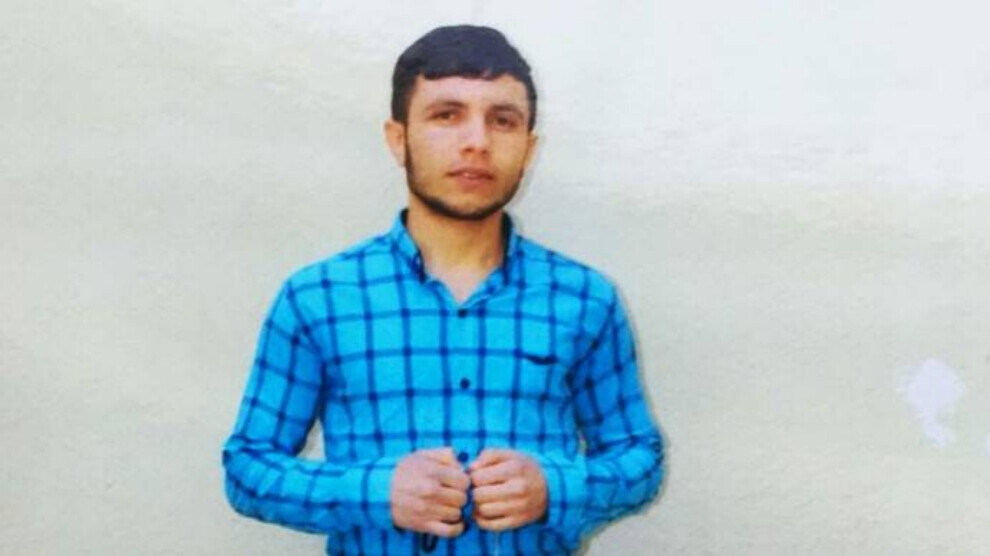Arrested when he was 17, sentenced to 22 years without a fair trial
Kadri Sancar, who was arrested during the self-government resistance in Dargeçit when he was 17, saw his sentence upheld by the Court of Cassation.
Kadri Sancar, who was arrested during the self-government resistance in Dargeçit when he was 17, saw his sentence upheld by the Court of Cassation.

Kadri Sancar was sentenced to 22 years and was brought before the judge through SEGBIS (audio video system).
He was 17 when he was detained and sentenced to 22 years in prison. The sentence was upheld by the Court of Cassation.
K.S., Ö.K., İ.A., B.A., H.T., R.A. and S.D. had taken shelter in a house during the self-government resistances in Dargeçit, Mardin in 2015-2016. They were all under 18 and were arrested by special teams.
The 22-year sentence handed out to Kadri Sancar, who is still in Aliağa Şakran Prison, was upheld by the Court of Cassation. The family was notified of the decision on 6 July.
Kadri Sancar, who was 17 years old at the time, has been in detention since December 2015. According to his elder brother, Islam Sancar, he was remanded in custody without a proper trial.
Speaking to ANF, Kadri's older brother, Islam Sancar, said that the children took shelter in the house of the aunt of one of them during the conflict. On the last day of the curfew, the house was raided by special operations teams upon information given by someone from outside. The children were told to go out, otherwise the team would open fire on the house. According to Ismail Sancar, the children were scared as they heard the order to 'kill'. They went out to avoid endangering the young children of the woman in the house.
Children between the ages of 15, 16 and 17 were subjected to torture by the special operations police, reminded Sancar, adding that a belt was tied around his brother Kadri's neck and he was dragged on the ground. He was so badly beaten that when his older brother saw him, 4 months later, he still had bruises under his eyes. The children were kept in prison in Midyat for about a month and a half, and then deported to Şakran Juvenile and Youth Prison in Aliağa, province of Izmir.
No result from the court
Stating that no result could be obtained from the case in Mardin for a long time, Islam Sancar explained that similarly, the case of 3 children caught in the house next door was also heard. Just like those four children, they were also deported to Izmir. Those three children were acquitted at the trial there. However, the trial of Kadri and his friends continues. At that time, the Sancar family found a lawyer from Ankara. But the lawyer did not deal with the case as they wished. Moreover, they could not reach the lawyer for a while, and they later heard that he had died. The Sancar family, whose financial means are limited, cannot get back the money they gave to the lawyer.
Islam Sancar is trying to make the case known by his own means. It brings up the fact that Kadri has been ill for a while. The lawyer who is currently handling the case reached HDP MP Ömer Faruk Gergerlioğlu. After 4 years, Kadri, who could not eat due to dental problems, finally had his appointment with the hospital. But according to his elder brother Sancar, due to the epidemic, that treatment has also been left unfinished. The family has not always been able to go to see their detained children since 2015. Islam Sancar states that his parents only saw Kadri twice during this time: “We can't afford to go that far. My mother only saw Kadri twice. My brother was a child when he went to prison. His childhood ended there, now his youth will end given the sentence handed out to him.”
The family's lawyer, Çiğdem Koç, took the case after the Court of Cassation decision. She is currently preparing an individual application to the Constitutional Court for a retrial. Lawyer Koç pointed out that the children hardly ever see the face of a judge: “This is a second “Ilhan Çomak case”. What happened with Çomak, 27 years ago, is happening now. The boys were sentenced to 22 years without a face-to-face trial. I'm reviewing the case and there isn't a single piece of solid evidence. Children have already been punished for entering a house. Although the woman they were staying with was the aunt of one of them and the woman did not complain, they were punished for that. As concrete evidence, one of them had a trace of gunpowder on his hand, but this has not been fully investigated either. These young people were children when they were arrested, but no fair trial was held.”